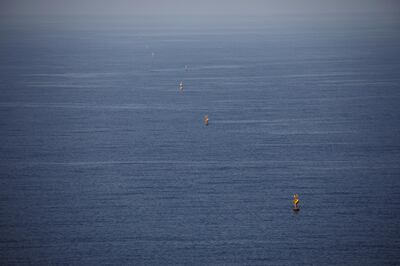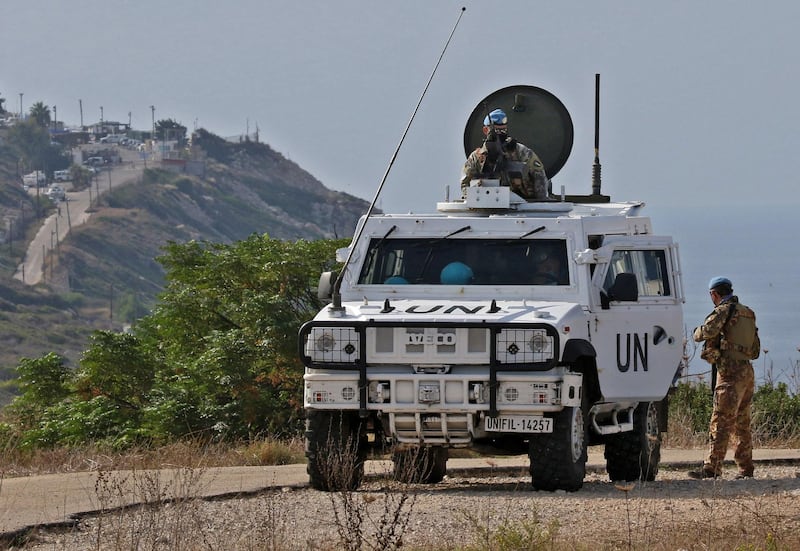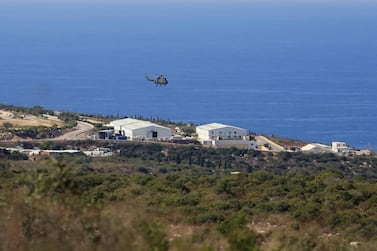Maritime border talks between Lebanon and Israel scheduled for Wednesday have been postponed and US mediators will now contact the countries separately, Israeli and Lebanese officials said on Monday.
The negotiations began in October, with delegations convening at a UN base to try to resolve a dispute that is holding up hydrocarbon exploration in the potentially gas-rich area.
Israeli Energy Minister Yuval Steinitz said it was agreed with the US that talks would be postponed for a few weeks.
"In the interim, they will do some shuttling in order to better prepare the next round of talks," he told Israel's Army Radio.
The talks are the culmination of three years of diplomacy by Washington.
Disagreement over the sea border discouraged oil and gas exploration near the disputed line.
The sides presented contrasting maps for proposed borders in October, sources said at the time.
'Hurdles and bust-ups'
Last week, Mr Steinitz said there had been no breakthrough after four rounds of talks and that Lebanon had "so far presented positions which add up to a provocation".
He said he expected "many more hurdles and bust-ups" but hoped a breakthrough could be reached in a few months.
A Lebanese security source said the reason for the delay was Israel's rejection of Lebanese proposals.

Lebanese President Michel Aoun said this month that the demarcation line should start from the land point of Ras Naqoura, as defined under a 1923 agreement.
Lebanon wants that line to extend seaward on a trajectory that a security source said would extend the disputed area from about 860 square kilometres to about 2,300 square kilometres.
Mr Steinitz said Lebanon had now changed its position seven times and was contradicting its own assertions.
The Iran-backed Lebanese group Hezbollah, which fought a month-long war with Israel in 2006, said the talks were not a sign of peacemaking with Israel.
Israel already pumps gas from huge offshore fields but Lebanon has yet to find commercial gas reserves in its own waters.
An agreement to hold the talks was announced weeks after the US increased pressure on Hezbollah's allies in Lebanon, imposing sanctions on a senior politician from its main Shiite ally, the Amal party.






